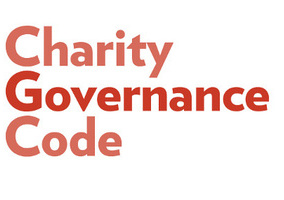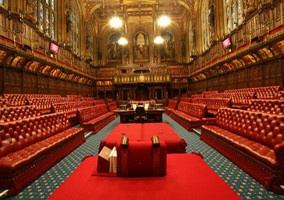Charities are reluctant to “buy into the BBC experience” and publish senior executive pay, Rosie Chapman said at the All Party Parliamentary Group on Charities and Volunteering yesterday.
Chapman, who is chair of the Charity Governance Code steering group, was speaking on the panel of the APPG which was on the subject of “what is next for charity governance”. Chapman was speaking about the feedback she had received since the publication of the new Charity Governance Code.
She said that the code talks about the “presumption of openness unless there is good reason not to be”, and that the group behind the code’s publication “explicitly included the example of publishing senior executive pay”.
But, she said: “Frankly the reaction by some charities to that is that people don’t like the argument for doing that, and they don’t buy into the BBC experience.”
She added that that “the ‘sunshine is the strongest disinfectant’ argument is not washing with some charities.”
'Headhunter's charter'
Questioned on this further, she said that her observation was based on about the last 120 or 130 people she’d spoken to about the code. She said she should caveat it by saying that the code lists the recommendation from the NCVO inquiry into chief executive pay so it is not inventing anything new. But that what people were saying is that it “drives up salaries elsewhere, and that it acts as a head-hunters’ charter”.
She added as a personal reflection, not a reflection as a chair, that “all the people who have made that point have been men”. But that she would “just leave that there”.
Labour Peer, Baroness Armstrong agreed with Chapman and suggested that not being more transparent about pay could be holding back women.
She said: “I was interested in what you had to say about the men. I actually said to NCVO at the time just think about that this is the sector that many women come through and it is the one sector where you are really saying that they should be paid buttons.
“If the sector had been mainly run by men, that would not have been happening. But it was also a way to constrain women who then go on very often into public sector positions or business, and I just think we let everybody get away with murder on that one quite honestly. I just think we misunderstood what was going on.”
‘Work from good practice’
Following on from discussions over the publication of the House of Lords report into charities and the new governance code, Baroness Armstrong said that “too often the charity regulators react to the bad cases and make it more difficult for the good charities to actually flourish and attract the trustees they need and the funding they need”.
She said: “Somehow the sector needs to have the confidence to work from what it knows is good practice, rather than just proving to the world that it is not bad practice. And I don’t think we have done that.”
Armstrong said that it is now “increasingly difficult to get good trustees for some challenging charities”, and that “it is particularly difficult when you are in areas that are not a ‘my age, middle class grouping’ who are prepared to give up the time and the effort, and I just think we are increasing the level of bureaucracy without necessarily improving the outcome”.
Responding to this, Baroness Pitkeathley, who chaired the Lords report, said that the decision to prosecute the trustees of Kids Company will also have an impact on trustee recruitment.
She said: “Whether or not you agree with that decision there is a question about whether that will have an effect on the ability to recruit more trustees. That is why we made some strong recommendations about better consultation with the sector and that it should be at the beginning of the process and not just as an afterthought. But it is an ongoing battle.”
Whistleblowing
Andrew Pepper-Parsons, head of policy at Public Concern at Work, was also speaking on the panel on the subject of whistleblowing.
He said that his organisation receives around 2,500 calls a year, 60 per cent of which are about whistleblowing. Of these, he said that 5-6 per cent come from the charity sector.
Pepper-Parsons said that financial malpractice makes up 21 per cent of calls from charities, which tends to include things such as theft, expenses fraud. He said that this is reflective across all sectors, with financial malpractice tending to be the top concern.
He said that the second and third most prominent concerns raised by charities are working practices. This includes HR issues such as discrimination or redundancy issues which impact the whole charity, and concerns around nepotism.
Pepper-Parsons told the APPG that whistleblowers are an “early warning system for things that might be going wrong in the organisation”. He said it is a “gift of information for the employer and regulatory body” and that is the way it should be seen by employers and regulators, but often it is not the case. He said thatinstead employers and regulators “often don’t want to hear the information that is being provided”.
House of Lords report government response
Pitkeathley said that been promised a response from the government to the House of Lords report, which came out in March, sometime during October, and that she is seeking a meeting with the minister for civil society Tracey Crouch which Crouch has said she is “minded to accept”.
APPG AGM
The APPG was the first meeting of the group following the general election and as a result was started with the election of officers.
The co-chairs of the group were elected as Baroness Pitkeathley, Lord Hodgson, Susan Elan Jones, Labour MP for Clwyd South, and Jeremy Lefroy, Conservative MP for Stafford.
Lord Shinkwin was re-elected as treasurer, and Martin Docherty, SNP MP for West Dunbartonshire, was elected vice-chair.
Related articles












